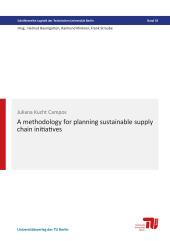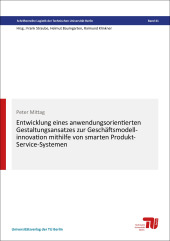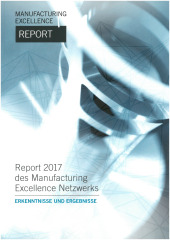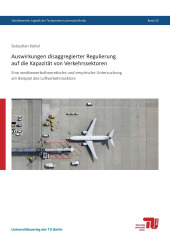Entwicklung eines Gestaltungsmodells zur Berücksichtigung von Nachhaltigkeit bei der Ausschreibung und Vergabe logistischer Leistungen im Straßengüterverkehr
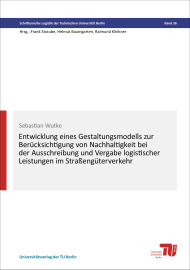
Format: 14,8 x 21,0 cm
Publishing year: 2016
The transport of goods has a significant and rising share of global greenhouse gas emissions. Due to high levels of outsourcing in transportation, a sustainability-oriented cooperation of logistics service providers and their customers is necessary to reduce these emissions. The present dissertation provides an innovative approach for the integration of sustainability into the procurement process for logistics services by linking relevant research topics and focussing on the main challenges in business practice. These are the lack of integrated approaches to take into account company-specific requirements, the limited measurability of sustainability and the additional effort for sustainability assessments of logistics service providers. This dissertation provides a process model for contracting companies, supporting the requirement-specific integration of sustainability into the procurement process. The model includes application-oriented methods and tools for a differentiated design of the process phases including: – The derivation of appropriate evaluation criteria for logistics service providers based on a requirements analysis, taking into account strategic business objectives and stake-holder requirements – The company-specific and quantified evaluation of sustainability measures and reduction potentials in the transport network, based on developed calculation methods and recommendations for action – A differentiation of procurement processes based on a sustainability-oriented purchasing portfolio – Recommendations for the design of procurement processes, sustainability assessments and the application of incentive and control mechanisms – Calculation methods for quantified sustainability assessments of service providers in the procurement process The developed model provides companies with an integrated approach that shows how sustainability can be measured and evaluated in the procurement process for logistics services. The model hence offers an alternative to the current predominantly price-based provider selection, which represents an obstacle in the implementation of sustainability measures. The results of this dissertation support practitioners and managers in efficiently measuring and increasing sustainability in the transport network by providing differentiated approaches and tools for the sustainability evaluation of logistics service providers.
